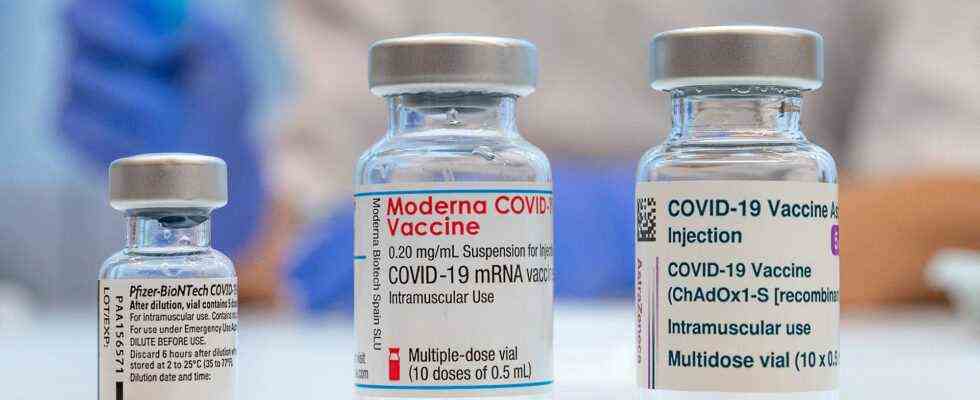Status: October 19, 2021 1:48 p.m.
For a long time, the share prices of the major vaccine manufacturers only knew one direction: up. But in the end there was disillusionment, also because of setbacks for some companies. Are they still good as an investment?
The disappointment was huge: after months of hope, the Tübingen biotech company CureVac had to admit its failure last week. The vaccine he developed against the coronavirus is largely ineffective. CureVac, in which the federal government has a 17 percent stake, withdrew its application for approval from the European Medicines Agency (EMA) and is now destroying the substance produced. “We’re too late for the pandemic product,” admitted CEO Franz-Werner Haas in a conference call last week: “The time window has closed.” CureVac will now focus on the second generation vaccine program with its partner Glaxo Smith Kline.
The boom is not sustainable
The stock, which has been listed on the US technology exchange Nasdaq since the summer of last year, collapsed and is still on shaky ground. Because now there is also speculation that the billionaire and co-founder of SAP, Dietmar Hopp, wants to withdraw. Hopp rejected such considerations. He holds almost half of the capital in CureVac through the holding company Dievini. Since its peak, the Curevac share has lost a good two thirds, and a good 30 percent since the IPO.
The CureVac case shows how risky investing in vaccine manufacturer’s papers can be. Your well-being and woe depends crucially on the effectiveness of the product. But the stocks of companies that are successful with Covid vaccines are also subject to strong fluctuations. For example, the shares of BioNTech and Moderna, which have posted price increases of around 200 percent within a year, have been sliding down significantly for a few weeks. Experts point to high vaccination rates in some of the western industrialized countries and to a decreasing willingness of the population to be vaccinated.
New focus on corona drug
The order books are full, also because booster vaccinations are planned and in some cases already carried out. But many consider the papers to be overrated and point to new developments that could cause problems for companies that have become stock market stars overnight: Many competitors are researching drugs against the coronavirus that are taken as tablets. The US pharmaceutical giant Merck has presented encouraging studies on such a Covid pill in the past few days and has already applied for emergency approval from the US authorities.
“The results exceeded my expectations for the drug in this clinical trial,” said Dean Li, vice president of research at Merck. “If the number of hospitalizations or deaths can be reduced by 50 percent, there is a significant clinical effect.” These success stories put the shares of BioNTech and Moderna under pressure. Competitors Pfizer, Roche and Atea are also working on similar drugs.
The more diverse, the more stable?
But there are also other opinions on the further development of the share price: Many analysts currently see BioNTech’s potential as far from being exhausted. They point out that the mRNA technology developed there against the coronavirus could also become the basis for vaccines against other diseases such as malaria or cancer of crucial importance. BioNTech in particular does a lot of research in this area. However, the shares of the Mainz-based company repeatedly become the plaything of speculators and therefore sometimes recorded violent price fluctuations. The vaccine manufacturer’s papers are therefore not for the faint of heart.
The listing of Johnson & Johnson, the only manufacturer with a single dose of vaccine to protect against the potentially deadly coronavirus, is somewhat more stable. Admittedly, this share also had to give up in recent times after doubts were repeatedly expressed about the effectiveness of the vaccine and a refreshment with an mRNA vaccine such as BioNTech or Moderna is recommended. Overall, however, the papers show fewer fluctuations. This is due to the fact that the traditional company has a much broader base. In addition to the flourishing but also fluctuating pharmaceutical industry, Johnson & Johnson also produces many cosmetic products that always find their buyers. In Germany, the company sells creams such as Bebe or Penaten, the mouthwash water Listerine and the sun protection products from the Piz Buin brand.

